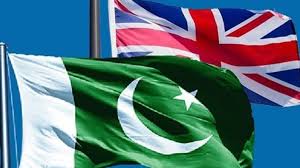What does the Labour govt mean for Pakistan?

London: With all eyes on London, the United Kingdom (UK) hailed a new government as Britons voted for change, confirming a landslide victory for the Labour Party last week.
Sir Keir Starmer, the prime minister of the newly formed government, reiterated his party’s commitment to igniting sweeping changes on different fronts, such as economy, migration, and foreign policy. This time the Labour Party has come to power by ending the almost 14-year rule of its political opponent, the Conservative Party, also known as the Tories.

The Labour government in London has significant global implications, especially for developing countries as migration and some international issues like the Gaza war had been among the major issues the voters bore in their minds while deciding who to vote for. Furthermore, the UK’s role as a time-tested and iron-clad ally of the current global superpower, the United States, in the existing world order has put Labour in the limelight.
Like many other developing nations, as a strategic partner of the UK, the Labour government holds profound implications for Pakistan too for many valid reasons. Going into details, we can see that Islamabad enjoys an Enhanced Strategic Partnership with London, highlighting the importance it places on bilateral relations.
Both countries have a long history of stronger cooperation in the fields of economy, development, trade, counter-terrorism, and people-to-people connections. According to statistics, the British Pakistani population has grown from about 10,000 in 1951 to over 1.6 million in 2021, who are the backbone of bilateral ties between the two nations. More than 100,000 British and dual nationals in Pakistan bestows deep personal ties.
The UK provides Pakistan’s third largest source of Foreign Direct Investment. Pakistan also receives the second highest number of workers sending money to family from the UK of any country in the world after India. The UK is Pakistan’s largest European trading, investment, and development partner. It is also one of Pakistan’s leading development assistance partners.
The UK is Pakistan’s largest export destination in Europe and the third-largest export destination in the world. In 2021, total bilateral trade witnessed an increase of 27%, rising from US$2.337 billion in 2020 to US$2.974 billion in 2021. The UK is also among the top sources of investment in Roshan Digital Accounts (RDAs), opened and maintained by individual non-resident Pakistani clients and resident Pakistani clients with wealth declared abroad.
However, Pakistan is now at a critical juncture in its history, grappling with manifold challenges ranging from a failing economy, political discord, contested elections, and institutional power struggles.
Moreover, Islamabad appears to be delicately balancing its foreign policy objectives, torn between the imperative of strengthening ties with China and maintaining relations with the United States amid regional and global dynamics.
Against this intricate backdrop, the Labour government holds profound implications for Islamabad’s future trajectory, potentially influencing not only diplomatic engagements but also economic partnerships and strategic alignments.
Islamabad eyes the Labour government taking steps to resume Pakistan International Airlines (PIA) flights to Europe and the UK following the airline’s license suspension, aiming to restore vital air connectivity. Pakistan also looks to the UK for support in securing financial assistance, including IMF loans and other aid programs to address its economic challenges.
Beyond economic and diplomatic considerations, the substantial Pakistani diaspora in the UK holds paramount political significance for Pakistan. The Pakistani expatriate community in the UK is not only sizable but also remarkably politically active, engaging in discussions and exerting influence on policies that directly impact Pakistan’s interests.
Recognizing the pivotal role that diaspora communities play in shaping bilateral relations and domestic politics, Islamabad places a high priority on bolstering people-to-people contacts and fostering deeper engagement with the Pakistani diaspora in the UK.
The recently held general election in the UK has brought new prospects for deepening the ties between the two nations as British Pakistani MP Shabana Mahmood has been appointed justice secretary. The number of British-Pakistanis in the new British parliament remains at 15, four of whom will mark their first time in the parliament.
Labour Party’s Afzal Khan, Imran Hussain, Naz Shah, Yasmin Qureshi, Muhammad Yasin, Tahir Ali, Shabana Mahmood, Zarah Sultana, Dr Zubir Ahmed, Naushabah Khan, Dr Rosena Allin-Khan claimed victory in the election. They are joined in the parliament by Ayoub Khan and Adnan Hussain, who won the elections as independent candidates, and Saqib Bhatti and Nusrat Ghani, who won the polls as Conservative candidates.
The tally shows that British Pakistanis have a stronger hold in the Labour Party than any other parties in the UK, widening the prospects for deepening bilateral ties between the two countries and their peoples.
For Pakistan, the election’s outcome carries significant weight, as Islamabad endeavors to solidify its ties with the UK across various fronts, spanning economic collaboration, diplomatic engagements, and outreach to the Pakistani diaspora. However, it is highly unlikely that the results of the election will bear upon the foreign policy of both countries.





